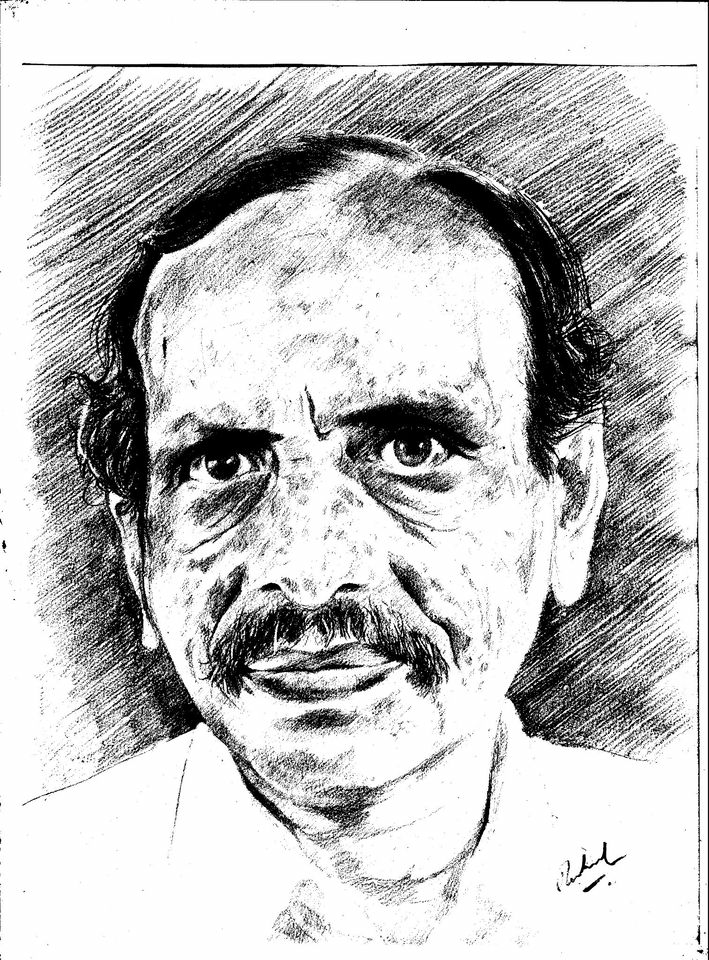$\newcommand{\DD}[2][]{\frac{d^2 #1}{d^2 #2}}
\newcommand{\matrixelement}[3]{\langle#1|#2|#3\rangle}\newcommand{\PP}[2][]{\frac{\partial^2 #1}{\partial #2^2}}\newcommand{\dd}[2][]{\frac{d#1}{d#2}}\newcommand{\pp}[2][]{\frac{\partial #1}{\partial #2}}\newcommand{\average}[2]{\langle#1|#2|#1\rangle} \newcommand{\dd}[2][]{\frac{d#1}{d#2}}\newcommand{\Label}[1]{\label{#1}}$
We discuss the solution of time dependent one particle Schrodinger equation and obtain an expression for the propagator giving the time development.
The propagator, \(K(x,t;x_0,t_0)\), for time dependent Schr\"{o}dinger equation \begin{equation} i \hbar \dd[\psi(x,t)]{t} = H \psi(x,t). \Label{EQ05} \end{equation} is defined as the solution of \begin{equation} i\hbar \dd{t}K(x,t;x_0,t_0) = H K(x,t;x_0,t_0) \Label{EQ01}. \end{equation} obeying the initial condition \begin{equation} \lim_{t\to t_0} K(x,t;x_0,t_0) = \delta(x-x_0). \Label{EQ02} \end{equation} To describe in words, the propagator $K(x,t; x_0,t_0)$ is seen to coincide with the wave function of a particle at time \(t\) evolving from the state having precise position $x_0$ at time $t_0$. If the wave function at time \(t_0\) the wave function is known to be $\psi_0(x)$, the wave function at time $t$, $\psi(x,t)$ can be written in terms of propagator as \begin{equation} \psi(x,t) = \int K(x,t;x_0,t_0)\psi_0(x_0) dx_0. \Label{EQ03} \end{equation} That $\psi(x,t)$ satisfies initial condition \begin{equation} \lim_{t \to t_0} \psi(x,t) = \psi_0(x) \Label{EQ04} \end{equation} is obvious from Eq. \eqref{EQ02}. Also it follows from \eqref{EQ01} and that $\psi(x,t)$ is a solution of the time dependent Schr\"{o}dinger equation \eqRef{EQ05}. To obtain an expression for propagator, we recall that the most general solution of the Schr\"{o}dinger equation is given by \begin{equation} \sum c_n e^{-iE_nt/\hbar} u_n(x). \Label{EQ06} \end{equation} in terms of the energy eigenvalues $E_n$ and the energy eigenfunctions $u_n(x)$. Writing the propagator, $K(x,t;x_0,t_0)$, equal to the above expression \eqref{EQ06} and setting $t=t_0$ gives \begin{equation} \delta(x-x_0) = \sum c_n u_n(x) \Label{EQ07}. \end{equation} Multiplying by $u_k^*(x)$, integrating over $x$ and using orthogonality property of the energy eigenfunctions we get \begin{equation} c_k = u^*_k(x) e^{iE_kt/\hbar} \Label{EQ08}. \end{equation} Substituting for the coefficients $c_n$ in \eqref{EQ06}, the propagator takes the form \begin{equation} K(x,t; x_0,t_0) = \sum_n c_n e^{-iE_nt/\hbar} u_n(x) = \sum_n e^{-iE_n(t-t_0)/\hbar} u_n(x_0) u_n(x) . \Label{EQ09} \end{equation} If we substitute \eqref{EQ09} in \eqref{EQ03}, we get \begin{equation} \Label{EQ12} \psi(\vec{r},t) = \sum_{k=1}^{\infty} c_k u_k(\vec{r}) \exp(-iE_kt)/\hbar)\psi(\vec{r},t) = \sum_{k=1}^{\infty} (u_k, \psi_0)\exp(-iE_k(t-t_0)/\hbar) \,u_k(\vec{r}). \end{equation}
Exclude node summary :
Exclude node links:
4727: Diamond Point, 4909: QM-HOME-I






 ||Message]
||Message]
